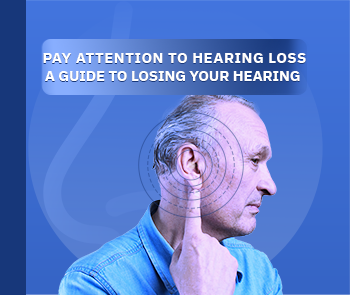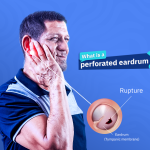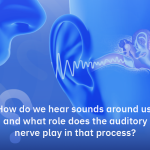Hearing Loss
Hearing loss is one of the most common conditions affecting individuals, often developing gradually over time. While it is frequently associated with aging, it can also impact young people and children from birth.
In this article, we will cover the following:
- What is hearing loss?
- Causes of hearing loss
- Risk factors for hearing loss
- Symptoms of hearing loss
- When to see an ENT specialist
- Diagnosing hearing loss
- Treatment options for hearing loss
What is Hearing Loss?
Hearing loss refers to a reduced ability of one or both ears to detect and distinguish sounds. In a healthy ear, sounds are perceived clearly, and the source of the sound can be identified. Any impairment in this function constitutes a form of Impaired Hearing. The main types include:
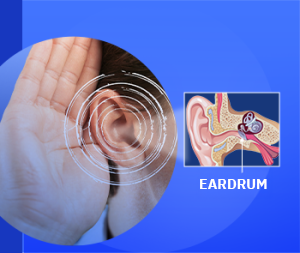
- Conductive hearing loss: Occurs when sound cannot pass through the outer or middle ear. This type may be corrected through medical or surgical intervention.
- Sensorineural hearing loss: Caused by damage to the inner ear or auditory nerve, and is often more difficult to treat.
- Mixed hearing loss: A combination of conductive and sensorineural hearing loss, involving problems in the inner, middle, and/or outer ear.
Causes of Hearing Loss
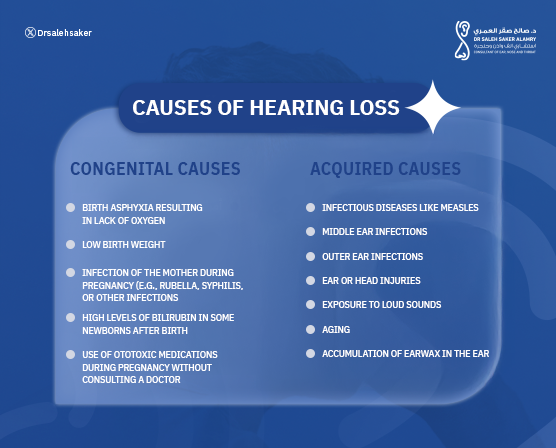
Symptoms of Hearing Loss
Symptoms vary by age group:
In children:
- Speech development delays
- Learning difficulties
- Poor interaction with the environment
In adults:
- Difficulty hearing conversations
- Struggles with communication
In the elderly:
- Social withdrawal due to difficulty engaging with others
When to See an ENT Specialist
Consult an ENT doctor if:
- You notice any hearing difficulties, even in the absence of other symptoms.
- You experience sudden Impaired Hearing, especially in one ear.
Diagnosing Hearing Loss
Diagnosis is based on several tests:
- Physical exam: The doctor examines the ear canal and eardrum using a light to check for wax buildup, infection, or tumors.
- General hearing test: Includes blocking one ear to test hearing in the other, assessing sound differentiation.
- Tuning fork test: Uses metal instruments to evaluate the ability to hear various sound frequencies and identify the site of Impaired Hearing.
- Audiometry: The patient wears headphones and responds to sounds of varying frequencies and volumes.
What Is the Treatment for Hearing Loss?
Treatment depends on:
- Accurate diagnosis
- Type of Impaired Hearing
- Age and overall health
Earwax Removal:
The doctor may begin by removing excess earwax to restore proper hearing. This can be done by softening and suctioning the wax or flushing the ear using a rubber syringe filled with warm water.
If the patient suffers from frequent wax buildup, the doctor may prescribe ear drops to dissolve the wax.
“Discover everything you need to know about earwax blockage – click here for more details!”
Antibiotics:
If the Impaired Hearing is due to a bacterial infection, the doctor may recommend topical antibiotics in the form of ear drops, as well as oral antibiotics in tablets or injections. These treatments help clear the infection and restore lost hearing.
Surgical Intervention:
Surgery may be necessary if there are structural problems in the middle ear, such as issues with the eardrum or auditory bones.
In cases of chronic or recurring infections, surgery is often the best option to remove fluid buildup behind the eardrum. The physician may treat the condition by inserting ear tubes.
Hearing Aids:
If Impaired Hearing is caused by a problem in the inner ear or damage to the nerve responsible for transmitting sound to the brain, hearing aids can significantly improve hearing and help the patient better engage with their surroundings.
Complications of Hearing Loss
Impaired Hearing can affect communication and lead to social withdrawal, depression, or cognitive issues, especially in the elderly.
Preventing Hearing Loss
Follow these tips:
- Avoid loud environments or wear hearing protection like earplugs.
- Have regular hearing tests if exposed to noise frequently.
- Limit exposure to high-risk activities such as jet skiing, hunting, and using power tools.
- Be aware of medications that may affect hearing.
Routine Hearing Checks
Regular hearing checks are essential, especially if:
- You have a family history of Impaired Hearing
- You work in noisy environments
- You engage in loud hobbies
- You take medications known to affect hearing
Impaired Hearing is a common condition that can significantly affect an individual’s quality of life and communication abilities. Understanding its causes, symptoms, and treatment options is essential, especially for elderly individuals, to ensure proper care and enhance life quality.
